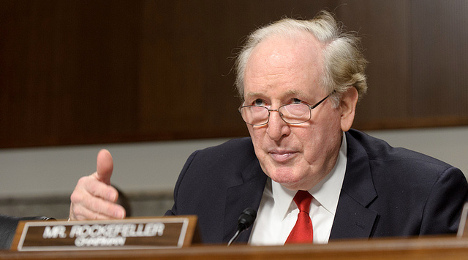Rockefeller Wants New Vehicle Fee to Help Fund NHTSA

Sen. Jay Rockefeller included this proposed fee within the Motor Vehicle Safety Act of 2014.
By subscribing, you agree to receive communications from Auto Remarketing and our partners in accordance with our Privacy Policy. We may share your information with select partners and sponsors who may contact you about their products and services. You may unsubscribe at any time.
WASHINGTON, D.C. –
In an attempt to give the National Highway Traffic Safety Administration more funds and resources to handle the rising amount of vehicle recalls, the chairman of the U.S. Senate Commerce Committee introduced a bill that would create a federal vehicle usage fee.
Sen. Jay Rockefeller included this proposed fee within the Motor Vehicle Safety Act of 2014 when the West Virginia Democrat who heads this Senate committee introduced the measure this week. The proposed a $3 per vehicle fee beginning in 2015, rising to $6 a year later and then $9 in 2017.
Lawmakers contend the fee could generate $200 million in the first year of implementation, climbing to $280 million in later years and beyond especially when the fee is tied to the inflation rate determined by federal officials.
Rockefeller insisted part of the reason for this revenue stream to boost NHTSA is the millions of vehicles recalled this year alone by General Motors and other OEMs.
“If NHTSA doesn’t have the resources or capabilities to protect the driving public and fulfill its mission, then Congress must step in and give this agency what it needs to meet these critically important goals,” Rockefeller said.
“For the past 15 years many of us have attempted to bolster NHTSA’s authority, precisely to better prevent tragedies like the deaths caused by GM’s faulty ignition switches,” he continued. “While we’ve made some progress, ultimately we’ve been blocked from fully providing NHTSA with the adequate resources and authorities it needs. Everything we’ve learned in the past months through our committee investigation into GM has made it absolutely clear that it’s time to put our differences aside.
Subscribe to Auto Remarketing to stay informed and stay ahead.
By subscribing, you agree to receive communications from Auto Remarketing and our partners in accordance with our Privacy Policy. We may share your information with select partners and sponsors who may contact you about their products and services. You may unsubscribe at any time.
“We’ve got to act now and support NHTSA if we’re going to minimize the chances of another heartbreaking tragedy,” Rockefeller added.
The Senator went on to point out the Motor Vehicle Safety Act of 2014 now in the upper chamber aims to enhance NHTSA’s ability to carry out important safety programs and hold manufacturers and dealers accountable for the safety of their vehicles.
Specifically, Rockefeller’s legislation would:
—Gives NHTSA greater safety authority, including the authority to remove dangerous vehicles from the road and raise caps on civil penalties for safety violations.
—Increases funding for NHTSA’s chronically underfunded vehicle safety programs by authorizing appropriations for NHTSA.
—Prohibits dealers from selling used vehicles with known pending safety recalls without fixing the defect or making the consumer aware of the defect.
—Promotes greater transparency at NHTSA by requiring public availability of early warning data, improving consumer access to the vehicle safety database, and limiting the “revolving door” between NHTSA and the auto industry.


